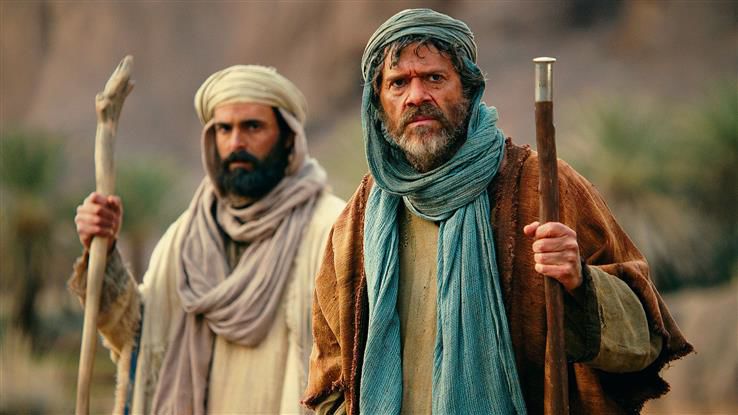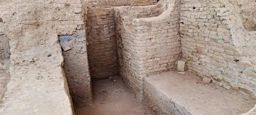‘Testament: The Story of Moses’ is engaging fare.
Film: NETFLIX: Testament: The Story of Moses
Director: Benjamin Ross
Cast: Avi Azulay, Mehmet Kurtulus, Dominique Tipper, Reymonde Amsallem, Ishai Golan and Tulay Gunal Goncu
Parbina Rashid
Here goes a popular joke — ‘Moses led his people through the desert for 40 years. It seems, even in Biblical times, men avoided asking for direction.’ But no, Moses might have had serious anger issues (he did kill an Egyptian taskmaster for whipping an Israelite), but asking for direction, he surely did. From Yahweh, no less!
In Netflix’s docudrama ‘Testament: The Story of Moses’, Moses is a flawed man who gives in to fits of rage, has self-doubt and thinks nothing of keeping his real identity a secret from his wife Zipporah and his children. His relationship with Yahweh, the God of the Israelites, is also at times volatile. But egoist he is not. There are scenes where he is submissive to Zipporah.
The mini-series comprises three 80-minute episodes. The first, ‘The Prophet’, begins with Moses’ life as an Egyptian prince, his exile to the land of Midian and, ultimately, his return to Egypt after Yahweh convinces him to free the Israelites from slavery.
‘The Plagues’ recounts Moses’ attempts to convince the Pharaoh to free the Hebrew slaves. Empowered by God, he unleashes 10 plagues on the people of Egypt.
The third episode, ‘The Promised Land’, is about how Moses leads his men to the promised land of Canaan.
Director and co-writer Benjamin Ross repackages the Old Testament with recreated scenes and inputs from experts belonging to Judaism, Christianity and Islam, and thereby producing a well-rounded portrait of Moses, who is considered a prophet by all three Abrahamic religions.
Whether Ross has adhered to the religious scriptures in letter and spirit is a subject of debate, but his engaging fare is apt for the Netflix generation, who would prefer to watch rather than read the Bible, Torah or Koran.
The relatability factor also comes from an excellent choice of talking heads. Two rabbis, two Biblical scholars and two Islamic scholars seem like a heavy mix but surprisingly, they lift the narrative with a dose of humour and believable interpretations. They draw comparisons between Moses’ quest and modern causes.
One of the rabbis declares, ‘Social justice began with Moses’, while one of the Biblical scholars terms the Hebrew midwives’ defiant stand against their Pharaoh, when they chose not to kill a bunch of newborn babies, the ‘first act of civil disobedience’. The seed of feminism, too, has not gone unnoticed: when Moses’ mother decides to put her newborn in a basket and leaves it in the Nile in order to save his life from the Pharaoh’s henchmen, Moses’ sister sings the song of liberation when they cross the Red Sea.
Sample this humour: when Moses climbs the Sinai mountain and communicates with God, who introduces himself as ‘I Am That I Am’, an expert cheekily questions, “What kind of name is that? It’s a verb. God is a verb.” Their interpretations at times are chuckle-inducing. And we don’t need to take them too seriously as the series begins with a clarification that their views are meant to “enrich the narrative… and not be understood as consensus”.
Now, while the talking heads add sparkle without taking away from the recreated scenes or breaking its continuity, Avi Azulay as Moses and the supporting cast — Mehmet Kurtulus as the Pharaoh, Dominique Tipper as Zipporah, Reymonde Amsallem as Miriam, Ishai Golan as Aaron, Tulay Gunal Goncu as Moses’ adoptive Egyptian mother Bithiah and Oberon KA Adjepong as Jethro — keep us engaged. Even when Clarke Peters speaks as Yahweh, he compels us to listen.
David McFarland’s wide-angle shots of Mt Sinai, the barren desert, the oasis of Midian and Pharaoh’s palace stand out as characters on their own, while the special effects used to depict the 10 plagues and miracles like the parting of Red Sea achieve their target. Whether we believe in the miracles and divine wrath or not, it does not let our attention waver. For a non-believer, that would be equivalent to a miracle!














